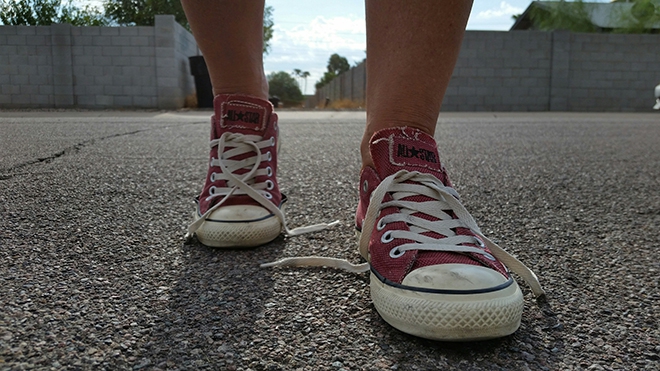A poverty simulation. United Way was going to show me what it’s like to be poor in less than two hours. I thought I had it in the bag. I know how to dress up ramen so it seems like a real meal. I’ve donated plasma to make rent. I could handle this.
But I soon found out that real poverty – the kind that exists without a car your parents bought you – is an all-consuming syndrome. It’s a collection of afflictions that feed on each other and conspire to perpetuate the cycle.
Day One
Work eight hours, tell your daughter she can’t go to D.C. for a school trip, and decide which bill you can’t pay. Make that decision based on how immediate the consequences are – the payday loan racks up outrageous interest fees, but at least the power’s still on.
Day Two
Work eight hours. Attempt to pay bills, but, of course, you work during business hours, and everything is closed after 5:00, so that 40-minute bus ride got you nowhere, and the bills aren’t paid.
Day Three
Work eight hours. Rush this time to pay your late bills, which are incurring fines and fees and charges and penalties. Shell out more money, endure the shame. Go home. Your daughter is pregnant.
Day Four
Work eight hours. Take a pay cut because you were late. Your daughter needed you.
I could continue with this pattern, because it is genuinely never-ending. What stops me is the thought that some people consider poverty and wealth to be earned commodities. America is a meritocracy, after all. Right?
After an hour of walking a mile in a shoes of a mom who faces poverty every day , I was done. In this simulation, I managed to forget to buy food for my family, default on most of my bills, neglect my children and barely see my husband. It’s likely that I would foreclose on my home after a few months. I thought I was good at this, but it turns out that no matter how smart, capable, enterprising or honest you are, poverty holds you back. Hard work does not equal financial security.
This truth contradicts the essence of the American Dream. There is political energy behind that notion, fueled by deeply rooted beliefs. And those beliefs are informed by experience. That’s why United Way’s Walk a Mile poverty simulation is so powerful. It has the capacity to change beliefs, and beliefs are the driving force behind policy, leadership and individual efforts to do what’s right.
This year, I’m working with Valley of the Sun United Way to encourage Intel employees to donate their hard-earned money to help the working poor. Have Intel employees worked hard to attain a successful career? Absolutely. Does their good fortune obligate them to help others? That’s a personal question with a personal answer.
Obligation is not an inspiring call to action. But understanding the struggles of others – through experience – bypasses the need for a well-reasoned request from United Way campaign leaders. If you truly walk a mile in the shoes of someone experiencing poverty — fighting tooth and nail to rise above it – you won’t need to hear a plea to donate from me. You will know what it’s like. And you’ll do what’s right.


